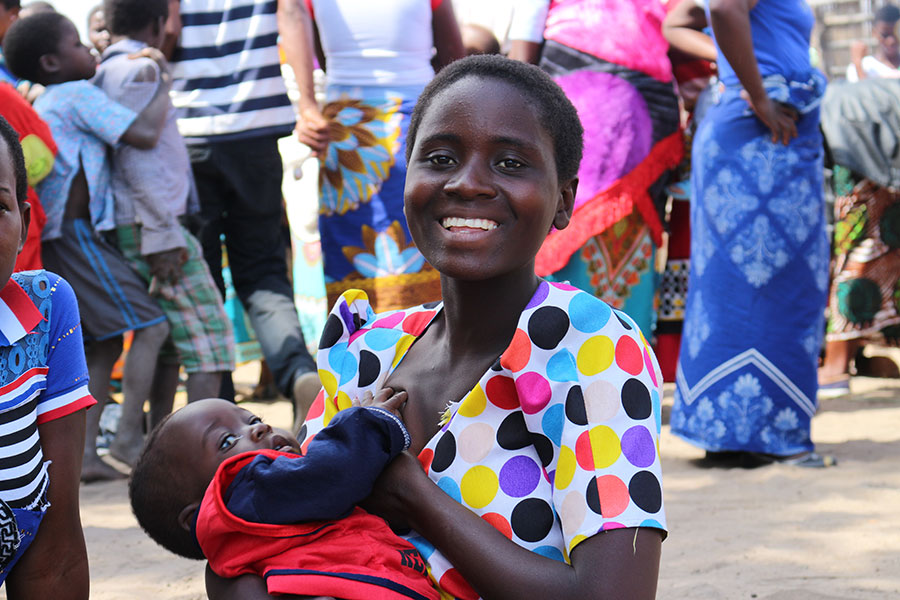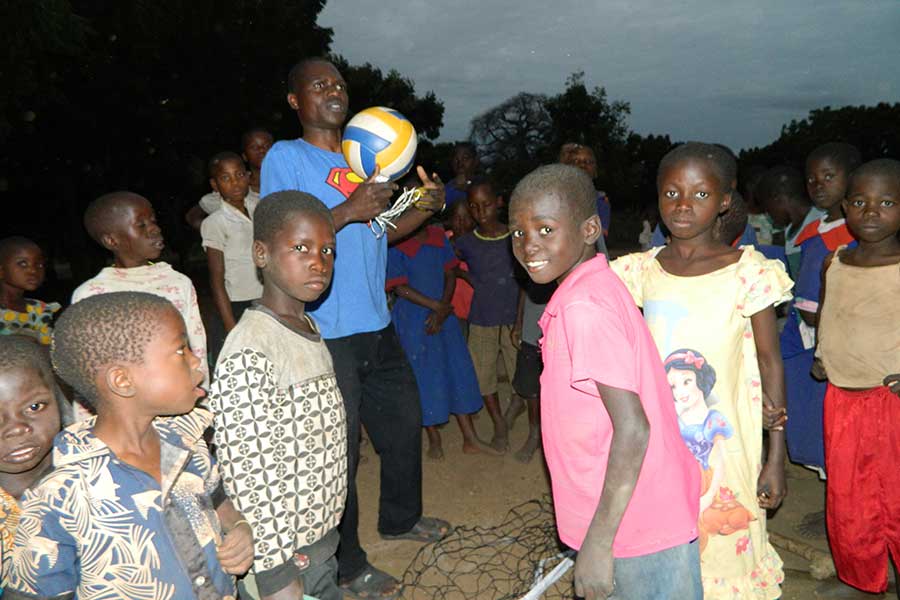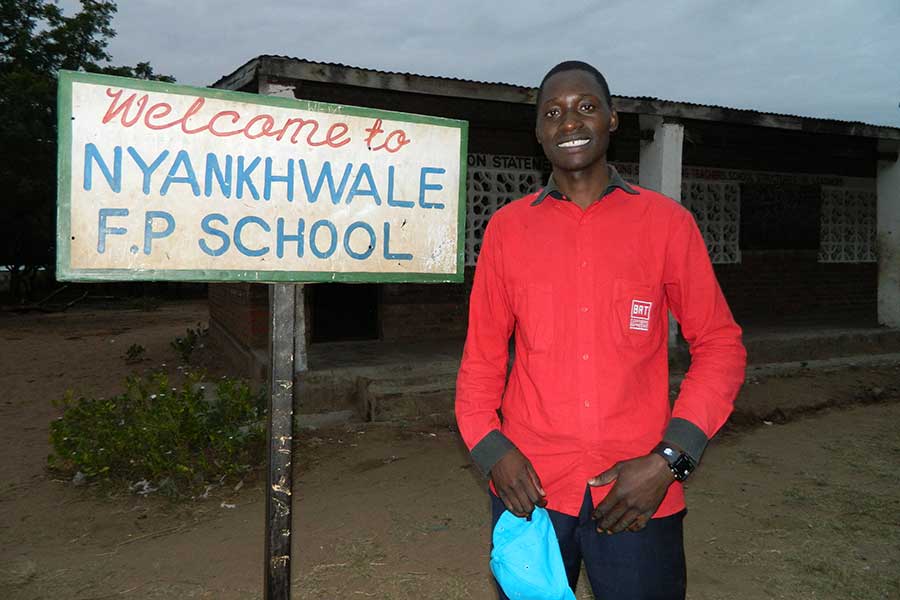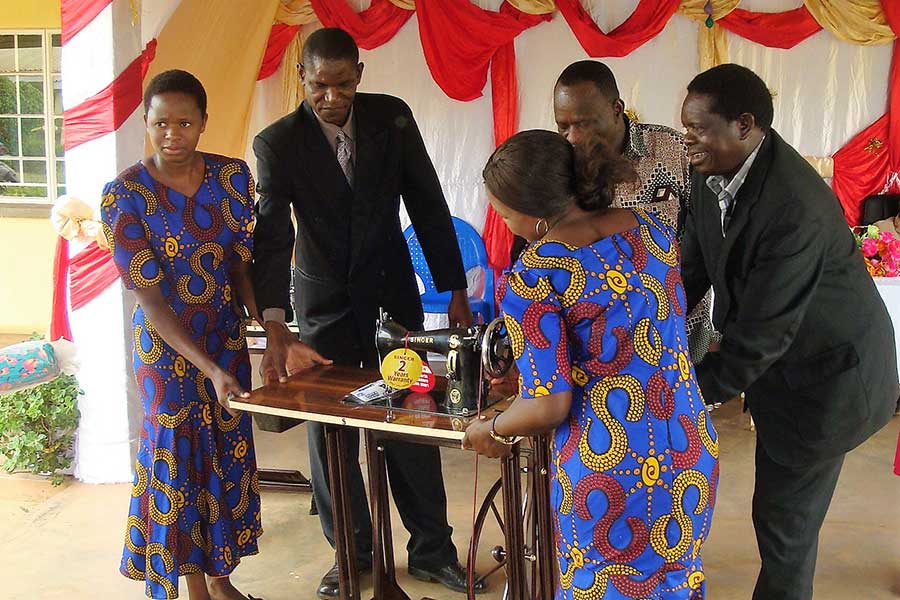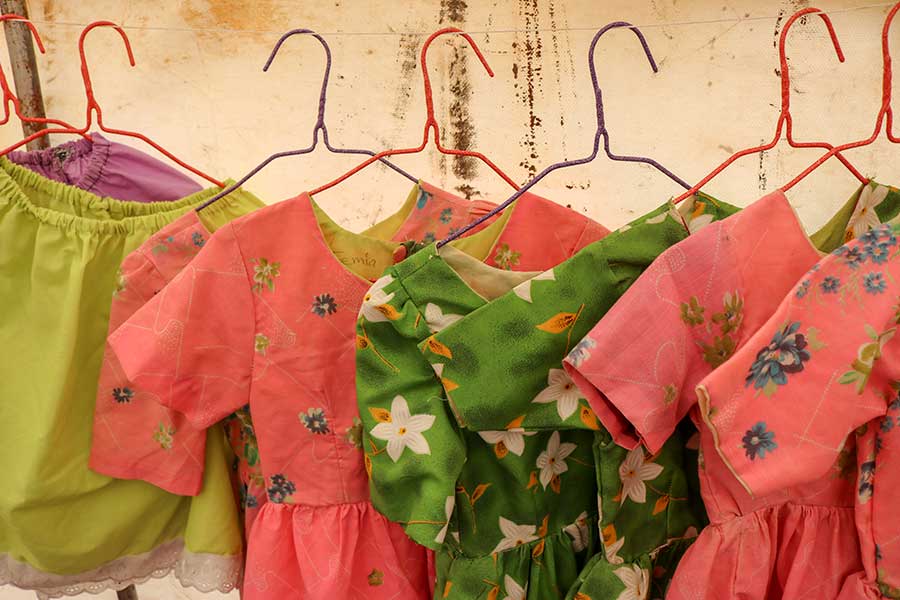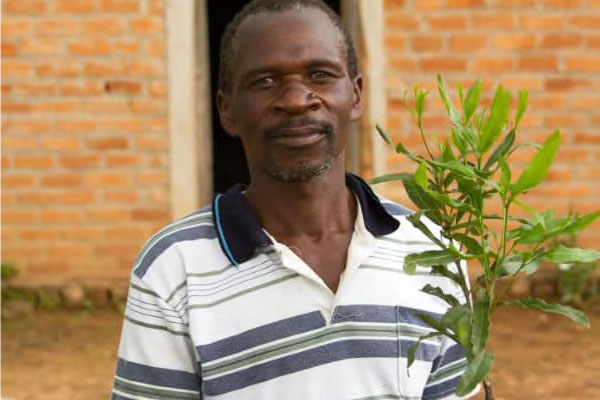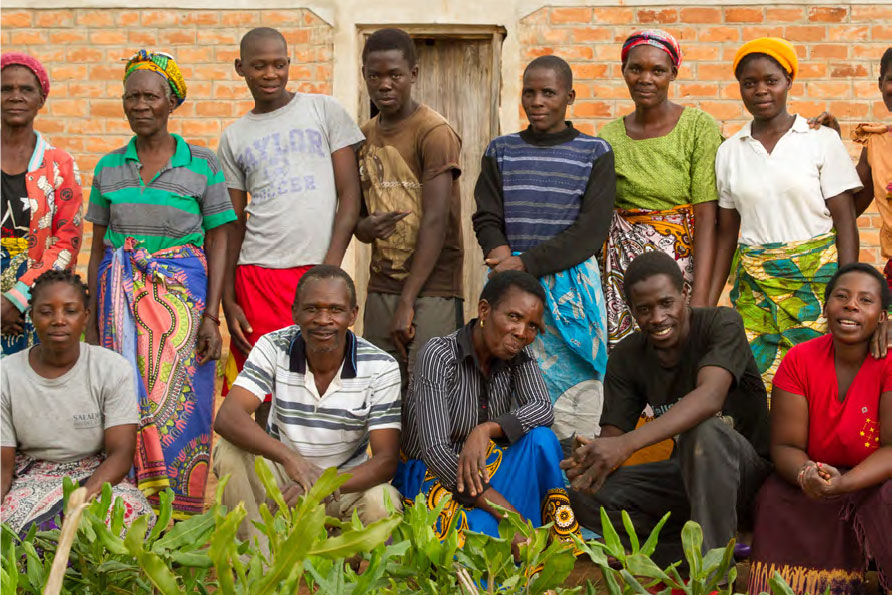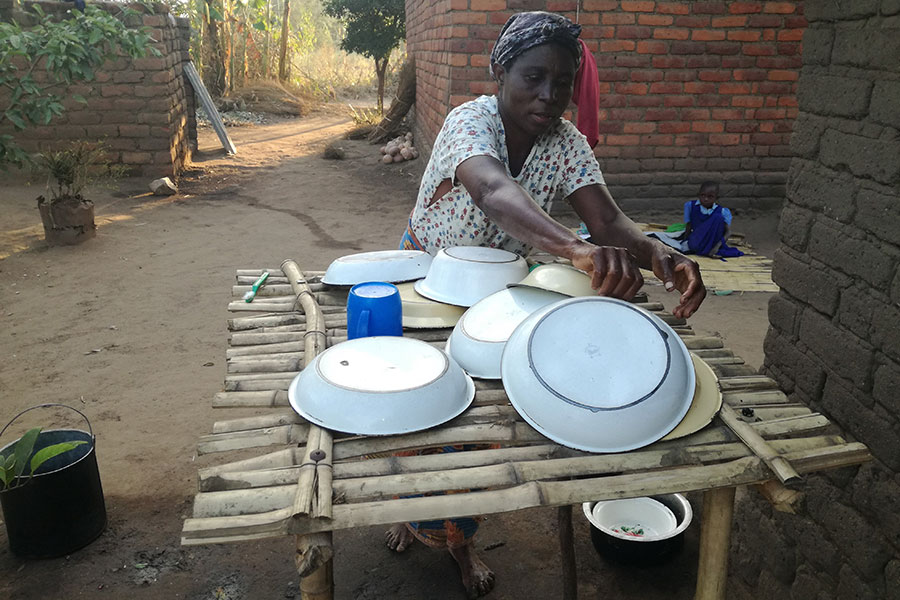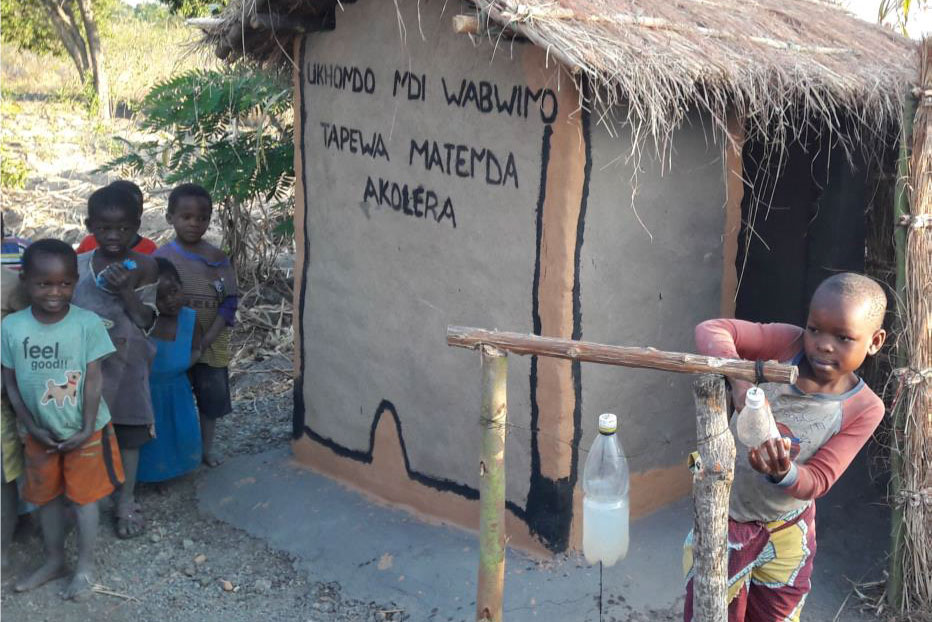Case Story – Luwiza Smart
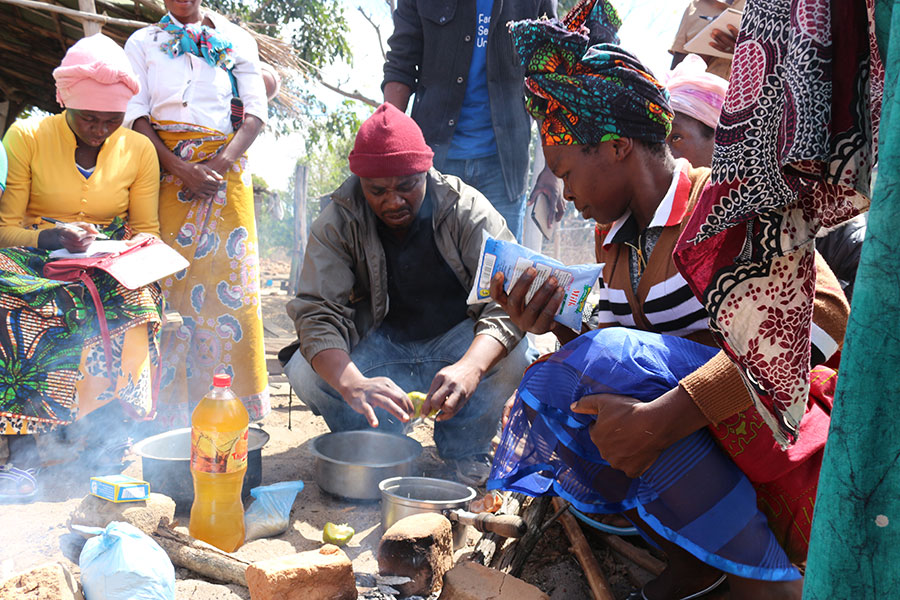
Luwiza Smart is a mother of one, she comes from Pondelani village in Traditional Authority Nchiunguza, in Machinga district. She narrates how she came to know about the Screening, Care and Nutrition for the Management of Severe and Moderate Malnutrition in Children Aged 0 to 2 Years project which had been implemented by DAPP Malawi in Traditional Authority Nchiunguza in Machinga district with funding assistance from Valdese Church through Humana People to People Italia.
In June this year, 2019, Community Health Workers visited me at home to screen my child. Following the screening it was discovered that my child weighed 12.3 kilograms. They advised me to go to Nayuchi Health Centre in order to be assisted.
At the health centre I was informed that my child will be enrolled in the child malnutrition program and I will have to start receiving Likuni Phala (soya flour used to make porridge) for the baby. I had been feeding the baby this porridge for a month and when I went for screening in July, the weight had gone up to 12.6 kilograms. Following this record my child was said to be on the road to recovery and I did not have to feed him therapeutic food anymore.
Through this project we have learnt about six food groups. These are foods which we have to be eating at least every day in our homes and they include carbohydrates, proteins, legumes, fruits, vegetables and oils.
Another thing we have learnt is how to determine if a child is malnourished. What you do is you put the baby on the lap, then with both hands hold the feet and press the upper part of the feet with the thumb, apply pressure for three seconds and release. If small holes appear on the skin, then the child is said to be malnourished. The same technique can also be used in the cheeks to determine the nutrition status in children.
Close to 1750 pregnant and lactating mothers have been key beneficiaries in the project. In addition, approximately 30000 people have been categorised as the secondary beneficiaries within the year.
The project was implemented from October 2018 to September 2019.

